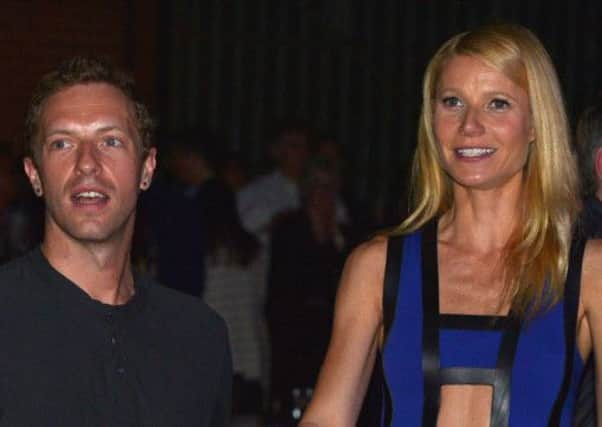Separations are seldom simple ‘uncoupling’


ANOTHER celebrity break-up, another field day for the media. One could be forgiven for feeling a sense of déjà vu when the news of the latest romantic casualty was announced. Celebrity break-ups are big business and the news of Gwyneth Paltrow and Chris Martin’s “conscious uncoupling” is a split made in tabloid heaven.
Who said what and who did what seem far less important to the media in a celebrity separation than who gets what and how bitter it might all become. The bigger the star, the bigger the stakes often seem to be.
Advertisement
Hide AdAdvertisement
Hide AdIt all seems a celebrity world away from the average separation agreement being hammered out between couples and their solicitors in Scotland every day of the year.
However, unlike many of the A-list celebrity break-ups, the announcement of the Paltrow/Martin parting of the ways might in fact have more in common with the average separation of today, rather than the acrimonious exchanges of celebritydom, which we have come to expect.
Nowadays, most couples going through a break-up set out with the lofty ambition of “keeping things amicable” whilst they formalise their separation.
However, unfortunately, when finances get discussed and childcare arrangements are made, it can sometimes be more difficult than perhaps first imagined to achieve such a goal.
If you were to ask family lawyers to list some of the most contentious issues a separating couple might typically encounter, the following would probably feature high up on that list:• Contact arrangements in relation to any children;
• The introduction of a new partner to any children of the relationship without the knowledge of the other parent;
• The relocation of one parent and any children to another part of the UK or possibly even outwith the UK;
• One party accessing a jointly owned house that they have left following the separation;
Advertisement
Hide AdAdvertisement
Hide Ad• The level of monthly support to be paid by one spouse to another.
For most people, there comes a point in their discussions where an impasse is reached and legal assistance requires to be sought.
However, this need not result in the abandonment of an “amicable separation”.
Mediation and collaboration are two distinct processes where a non-adversarial approach is insisted upon. Diverging views are discussed, acknowledged, and then, hopefully, resolved in a respectful way, which might not be either party’s idea of a perfect solution, but might at least be something with which they both can live.
However, there are times when a non-adversarial approach simply will not work in resolving the difficulties of a break-up. This can often arise in the area of childcare and who might be the main carer.
One parent might wish the children to stay with them and the other might not agree. Despite the involvement of mediators, agreement might be difficult to achieve.
In such situations, there would always be the option of court action but the cost, the delays, the potential publicity and the damage to an already fragile relationship might be enough to discount such a choice. In any event, in most cases, a couple would still wish to be able to talk to one another at the end of the separation, if only for the sake of the children.
In such a situation, arbitration might be the answer.
A couple could choose an arbiter they both might respect, someone qualified to make the decision impartially. They could sign up to the rules governing arbitration and abide by that arbiter’s decision. This would have the same effect as a court order; however, there would not be the publicity of a court action. An arbitration would be a private process with the couple determining the timescale rather than having one imposed on them by an overworked court system. A couple would each have legal advisers presenting their side of the case. Those advisers and the arbiter would determine the format and procedure necessary to present both sides of the argument.
Advertisement
Hide AdAdvertisement
Hide AdSeparation and divorce are sad matters for any couple, whether celebrity or not. However, mediation, collaboration and arbitration are all processes now available to couples to assist them on their way to achieving their ambition of an amicable separation. “Consciously uncoupling celebrities” would do well to take note.
• Ewan M Campbell is an associate and accredited specialist in family law at Russel + Aitken LLP www.russelaitken.com
SEE ALSO